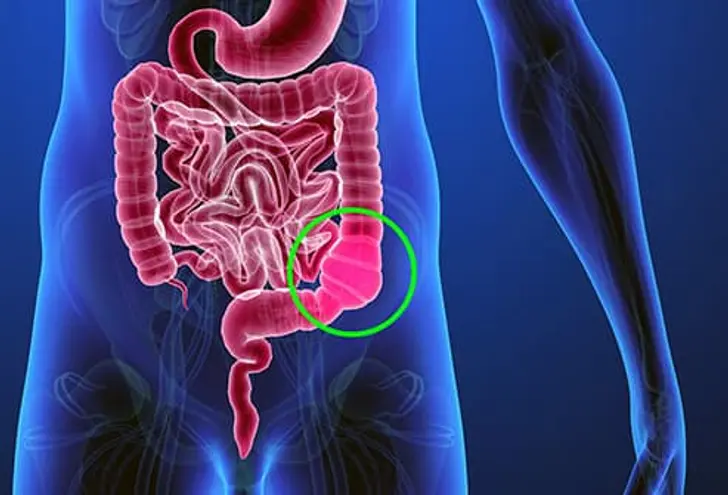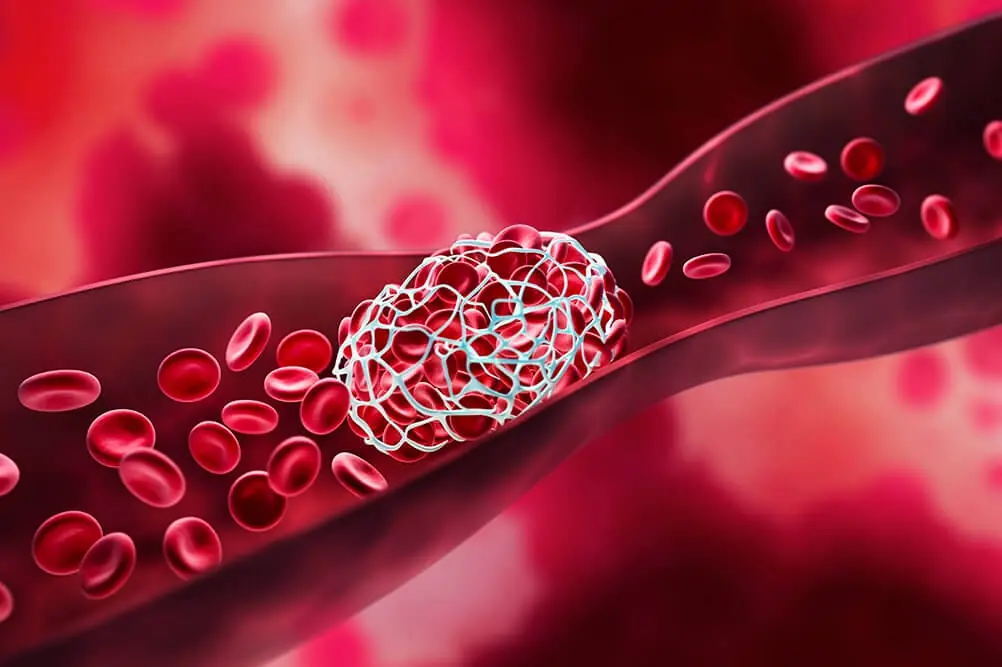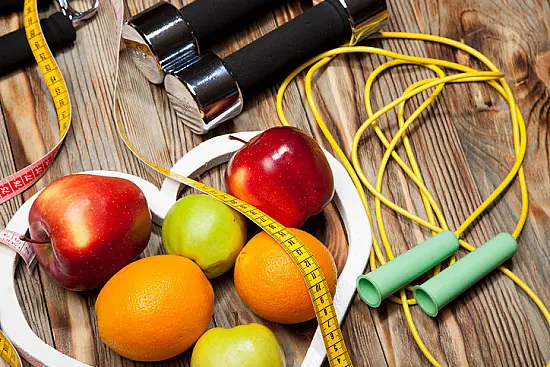
How to Conquer Constipation: Your Guide to Effective Home Remedies
How to Conquer Constipation: Your Guide to Effective Home Remedies

Dealing with constipation can be incredibly frustrating. Whether it's infrequent bowel movements or the painful struggle to pass dry, hard stool, this common condition can significantly impact your comfort and quality of life. While occasional constipation might resolve quickly, many individuals grapple with chronic constipation, enduring daily discomfort and distress.
Constipation stems from various factors. For most people, hard stools are linked to insufficient dietary fiber or inadequate fluid intake. However, certain medications, underlying health conditions (like irritable bowel syndrome or a bowel obstruction), or a sedentary lifestyle can also be culprits.
The good news is that for many, effective relief can be found in simple, accessible home remedies, often without needing to resort to harsh laxatives. Natural ingredients such as prunes, aloe vera, flaxseeds, and kiwifruit are renowned for their ability to soften stools and facilitate smoother passage.
If you're experiencing infrequent bowel movements, discomfort, or difficulty passing hard stool, this article is your comprehensive guide to excellent home remedies for constipation. Before we dive into the best natural treatments, let's first understand what constipation really is and its common causes. This foundational knowledge can help you implement appropriate lifestyle changes to prevent the uncomfortable buildup of hard stool in your colon and intestines.
Understanding Constipation: What It Is and Why It Happens
When food enters your digestive system, it undergoes a complex process of breakdown, allowing your body to absorb vital nutrients, proteins, fats, and vitamins. Digestive juices, bile, and billions of beneficial bacteria all play crucial roles in this intricate process. Any waste products that aren't digested are eventually eliminated through bowel movements or urination.
According to doctors from the Mayo Clinic, constipation is generally defined as having infrequent bowel movements, typically fewer than three times a week. Additionally, a person is considered constipated if they consistently experience difficulty passing stools that are hard, lumpy, or unusually dry, and this condition persists for several weeks or longer.
Types of Constipation
While "constipation" is a broad term for difficulty passing feces regularly, Dr. Namirah Jamshed from the Washington Hospital Center distinguishes between two main types:
- Functional Constipation: This is the most common type. It occurs when food moves too slowly through the digestive tract. This sluggish transit time leads to stools becoming excessively dry and hard, resulting in infrequent bowel movements (less than three times a week). This type of constipation is often linked to dietary habits (e.g., low fiber intake) or issues within the digestive system itself.
- Secondary Constipation: This type arises when an underlying medical condition, medication, or external factor disrupts normal digestive function. Causes of secondary constipation can include side effects from certain medications, chronic stress, irritable bowel syndrome (IBS), or other specific health issues.
Common Causes of Constipation
Numerous factors can contribute to problems with passing stools, leading to solid and painful bowel movements. Dr. Jerry Balentine on eMedicineHealth highlights that a poor diet – one rich in animal fats or refined sugars and notably low in dietary fiber – is a primary culprit. Furthermore, dehydration is a very common and often overlooked cause of hard, difficult-to-pass stools.
You might also develop chronic constipation if you consistently ignore the urge to have a bowel movement. Over time, the muscles in your colon can weaken, diminishing your natural urge to use the toilet. Additionally, certain medications, particularly those containing aluminum or calcium, are known to cause infrequent bowel movements as a side effect.
Dr. Carol DerSarkissian on WebMD lists other common causes of constipation, including:
- Irritable bowel Syndrome (IBS)
- Pregnancy (due to hormonal changes and pressure on intestines)
- Chronic stress
- Being physically inactive or leading a sedentary lifestyle
- Overuse or misuse of laxatives (which can lead to dependence)
- An underactive thyroid (hypothyroidism)
Symptoms of Constipation

Beyond the obvious difficulty in passing stools, what are the other common symptoms of constipation? Dr. DerSarkissian explains that many individuals suffering from chronic constipation also experience a persistent feeling of incomplete evacuation, as though everything hasn't come out completely. If you are constipated, you might also notice abdominal bloating or distension, and in some severe cases, frequent vomiting.
You may experience significant pain while attempting to pass stools, or be unable to have a bowel movement even after straining or pushing for more than 10 minutes. In some cases, chronic constipation can also lead to more distressing symptoms like anal leakage (fecal incontinence), a persistently hard or distended stomach, or the passage of stringy stool. The discomfort of constipation is frequently accompanied by excessive gas, and the act of straining can often contribute to the development of painful hemorrhoids.
However, the most definitive signs that you are constipated remain: straining to pass small or hard stools, and having infrequent bowel movements.
The Best Home Remedies to Naturally Relieve Constipation
Now that we've explored the many reasons behind constipation, what can you actively do to get things moving smoothly in your digestive tract and make trips to the toilet easier and more comfortable?
Your stools can tell a lot about your health, and if you are chronically constipated, it's crucial to address it. Here are some of the best, most effective home remedies to naturally relieve constipation:
1. Increase Your Fiber Intake: This is, hands down, the most common and effective advice doctors give for treating constipation. According to Dr. Laura Martin on WebMD, fiber is essential because it adds bulk to your stool, making it softer and easier to pass through your intestines. Adding more fiber to your diet can provide significant relief, even for chronic constipation.
The most beneficial type of fiber for constipation relief and promoting regular bowel movements is soluble fiber from plant foods. Excellent sources include whole grains, wheat bran, oats, citrus fruits, various seeds (like chia and flaxseeds), and importantly, the skins of fruits and vegetables. So, instead of meticulously peeling your produce, let your mouth work a little harder and enjoy fruits and vegetables with their skins intact. They also offer an excellent source of unprocessed sugars and serve as natural snacks that can soothe and settle your gut.
If you find it challenging to increase your dietary fiber sufficiently, Dr. Jerry Balentine recommends incorporating natural fiber supplements. These should be taken regularly to ease constipation and prevent the uncomfortable buildup of hard stool in your digestive tract.
- Wise Fiber Use: If you're not accustomed to a high-fiber diet, increase your fiber consumption gradually to prevent side effects like excessive gas and bloating. Also, individuals who have undergone gastrointestinal surgery or have related digestive diseases should always consult a doctor before significantly increasing their fiber intake.
2. Drink Plenty of Water: This is one of the easiest, cheapest, and most effective methods to both ease existing constipation and prevent hard stool from building up. There are numerous health benefits to drinking more fluids, and softening stools to make them easier to pass is a fundamental one.
Doctors from WebMD recommend drinking an additional two to four glasses of water a day, beyond your usual fluid intake, to ensure you stay properly hydrated. If you dislike the taste of plain water, get creative: make your own naturally flavored water with fruit slices, sip on honey-lemon water, or enjoy soothing herbal teas known for their digestive benefits.
3. Eat Prunes and Figs: These dried fruits are renowned for their ability to stimulate digestive activity and facilitate easier stool passage. Prunes and figs act as natural laxatives primarily because they are exceptionally high in dietary fiber. What's more, they are packed with essential vitamins and minerals that boost your overall health.
The use of prunes for constipation is far from an old wives' tale; scientific research supports their efficacy. The journal Alimentary Pharmacology & Therapeutics reported that prunes significantly help improve both stool consistency and the frequency of bowel movements. A study showed that consuming 100g of prunes daily effectively improved constipation symptoms and made going to the toilet much easier.
4. Consider Castor Oil (with caution): Castor oil is a powerful stimulant laxative that can significantly help stimulate the intestines, making bowel movements easier and reducing pain from hard stool. Doctors on WebMD often mention its historical use for clearing out the intestines due to its potent laxative properties.
Studies have confirmed castor oil's effectiveness in alleviating distressing constipation symptoms. For example, in a study involving elderly individuals with long-term constipation (some for 10 years or more!), administering castor oil led to softer stools, reduced straining during bowel movements, and a greater feeling of complete bowel emptying.
- How to Use: To use castor oil for constipation, take one to two teaspoons on an empty stomach. You can mask the taste by mixing it with a little fruit juice.
- Important Warnings: Do not exceed the recommended dosage, and do not take it for more than 7 consecutive days. Be aware that it may take 6 to 12 hours for castor oil to induce a bowel movement. Always consult a healthcare professional before using, especially for chronic constipation or if you have underlying conditions.
5. Take Probiotics: Probiotics introduce "good" bacteria to your gut, which are crucial for maintaining a healthy and properly functioning digestive system. These beneficial microorganisms can also help relieve secondary constipation, particularly when hard stool is a side effect of medications or underlying health conditions. Regularly taking probiotics can increase bowel movement frequency and ease straining.
Research indicates that probiotics play a significant role in alleviating constipation. For instance, researchers from Harvard Medical School reported that probiotics help make stool softer and thus easier to pass. Probiotic strains containing Bifidobacterium appear to be particularly effective. Another study published in 2011 found that regular probiotic intake improved bowel habits in individuals with Parkinson's disease.
Beyond supplements, you can boost your gut health by consuming more live, plain yogurt or kefir. These fermented dairy products are excellent sources of probiotics and can be combined with other constipation-fighting foods like prunes, figs, or flaxseeds. Additionally, incorporating other fermented foods like sauerkraut, kimchi, and kombucha can provide a beneficial boost to the "good" bacteria in your digestive system.
6. Utilize Aloe Vera as a Natural Laxative: Consuming aloe vera juice can be very beneficial for increasing stool frequency and easing constipation symptoms. Many individuals who experience constipation related to irritable bowel syndrome (IBS) or other digestive issues find significant relief with aloe vera juice.
The authoritative book Herbal Medicine notes that aloe vera is a commonly used treatment for constipation, and many natural constipation remedies include aloe vera extracts. Research confirms that using aloe vera as a laxative can increase the frequency of bowel movements and make feces softer. It may even help individuals regulate bowel movements naturally and reduce dependence on conventional laxatives, especially for those whose constipation is exacerbated by laxative overuse.
- How to Use: To help relieve constipation, try consuming 100 to 200 milliliters of pure aloe vera juice daily. Continue this regimen until you can pass stool easily. Once regularity is achieved, reduce the dose to around 50 milliliters per day for prevention, as excessive intake can lead to diarrhea.
- Alternative Forms: If fresh aloe vera juice isn't accessible, consider taking aloe vera in supplement form (tablets or capsules). Always ensure the quality of supplements and check for harmful additives.
7. Incorporate Ground Flaxseeds: Flaxseeds are an excellent natural ingredient for improving digestive tract conditions and treating chronic constipation. Whether you suffer from indigestion, IBS, or stomach bloating, flaxseeds can significantly enhance your digestive health.
A 2015 study in the Journal of Ethnopharmacology impressively reported that flaxseeds possess both laxative and anti-diarrhea effects, suggesting they can help regulate bowel function regardless of the issue. The researchers concluded that flaxseeds can effectively treat both constipation and diarrhea by promoting gut balance.
- How to Use: Add ground flaxseeds (whole flaxseeds are less effective as they often pass through undigested) to plain yogurt, cereals, smoothies, or other foods to help improve constipation symptoms.
8. Embrace Kiwifruit: Kiwifruit is a delightful and effective fruit for treating constipation. It contains unique properties that stimulate the digestive system, helping you to poop easier and more frequently. The rich fiber and water content of kiwifruit work synergistically to move stool through the intestines more efficiently.
The Asia Pacific Journal of Clinical Nutrition reported that increasing kiwifruit intake has a positive effect on constipation. One study found that eating just 2 kiwifruits a day for 4 weeks significantly improved the frequency of bowel movements and had an overall positive impact on bowel function.
9. Try Apple Cider Vinegar (Raw, Unprocessed): Drinking raw, unprocessed apple cider vinegar daily has a surprising number of health benefits, and aiding digestion is one of them. While not a direct laxative, apple cider vinegar contains amounts of pectin (a soluble dietary fiber), various vitamins and minerals, and acetic and citric acid.
A 2014 study on the effect of the soluble dietary fiber pectin on the digestive system found that it helps to speed up the time food passes through the gut. The researchers specifically noted that pectin helped alleviate symptoms of slow-transit constipation and improved the beneficial microflora in the intestines.
- How to Use: To boost digestion and overall health, dilute 1-2 tablespoons of raw, unfiltered apple cider vinegar in a glass of water and drink it before meals.
10. Exercise Regularly: A sedentary lifestyle is a known contributor to constipation. Regular physical activity is an excellent way to prevent constipation and actively stimulate bowel movements. Dedicating time each week to exercise will not only improve your digestive health but also keep your heart healthy, lower blood pressure, and help maintain a healthy weight.
A U.S. study found that individuals with a sedentary lifestyle were significantly more likely to suffer from constipation compared to those who were physically active. More active individuals reported more frequent bowel movements, found it easier to pass stool, and required fewer laxatives. Even simple, regular walking is a fantastic way to exercise, manage weight, and maintain cardiovascular health, all of which contribute to better bowel regularity.
11. Explore Other Natural Laxative Foods: Beyond the specific foods mentioned, many other natural options can help maintain frequent bowel movements and reduce the pressure and discomfort associated with constipation.
In an article titled "Diets for Constipation," researchers highlighted that foods like beans, various legumes, and a wide array of vegetables are excellent sources of dietary fiber. Additionally, some of the best fruits for softening stools include pears, grapes, apples (especially with their skins on), and ripe bananas.
12. Consider Virgin Coconut Oil: Virgin unrefined coconut oil is believed by some to help speed up metabolism and assist your body in cleansing itself of excess waste. To use it for constipation relief, try mixing 1 teaspoon of unrefined virgin coconut oil with an 8-ounce glass of natural fruit juice or herbal tea and drink it. This can be repeated 3-4 times per day, ideally at least 30 minutes before each meal.
13. Fresh Tomato Puree, Beetroot, and Olive Oil: Combining fresh tomato puree with a tablespoon of olive oil can help stimulate proper intestinal function and prevent constipation. Similarly, consuming a good serving of fresh beetroot is also known to promote regularity.
Other Natural Ways to Ease Constipation
Beyond dietary changes, certain physical and mental approaches can provide significant relief:
1. Abdominal Massage: Performing a gentle abdominal massage offers numerous health benefits, including effective constipation relief. This technique is simple to do yourself at home. Focus on massaging your abdomen in a clockwise direction, following the path of your large intestine, to help stimulate bowel movement.
2. Relax and Manage Stress: Stress impacts our bodies in countless ways, and the digestive system is highly susceptible to its effects. Chronic stress often manifests as either diarrhea or, conversely, constipation. Learning and practicing relaxation techniques can significantly help calm your nervous system and, in turn, regulate your digestive function. Explore deep breathing exercises, meditation, yoga, or spend time in nature to reduce stress and anxiety.
3. Simple 2-Ingredient Colon Cleanse: If you're seeking a powerful way to get rid of constipation and promote regular bowel movements, consider this simple yet effective colon cleanse using just two ingredients: milk kefir and ground flaxseeds.
-
Kefir: This fermented drink, traditionally made with milk and kefir grains, is a rich source of probiotics (friendly living organisms). Kefir helps balance the intestinal flora and restore the healthy function of your digestive system.
-
Ground Flaxseeds: When mixed with liquid, ground flaxseeds absorb water and expand in the colon. This creates bulk that aids in stool passage through your intestinal tract and helps remove toxins as they pass through.
-
How to Use: Begin by mixing one tablespoon of ground flaxseed with about a quarter or third of a glass of kefir. Drink this mixture once before breakfast and again before bed. Some people find it helpful to introduce kefir gradually, perhaps starting with a small amount with meals.

When to Seek Medical Attention for Constipation
While most cases of constipation respond well to home remedies, it's crucial to know when to consult a healthcare professional. Chronic constipation, especially if ignored, can lead to serious health issues as hard, dry stool accumulates in your intestines. This can progress to fecal impaction, a condition where stool becomes severely stuck in the colon and is difficult or impossible to remove without medical intervention. Constipation can also directly cause or worsen hemorrhoids or even lead to rectal prolapse.
Doctors from WebMD strongly recommend visiting your healthcare provider if your constipation is accompanied by any of the following concerning symptoms:
- Severe stomach pain and an inability to pass any stool or gas.
- Passing blood along with your stools.
- Experiencing unexpected and unexplained weight loss.
- If this is your first time experiencing severe constipation, it's advisable to seek medical attention to rule out any serious underlying conditions.
Always remember, while home remedies are highly effective for many, professional medical advice is essential for persistent, severe, or unusual constipation symptoms.
News in the same category


Researcher Studies Over 200 Kids—Here’s What the Most Emotionally Intelligent Ones Had in Common

Scientists Bioengineer Tooth That ‘Grows’ in Place Like a Natural One And Feels Real

9-year-old dies after dental procedure

How to Get Rid of Muscle Soreness: Effective Home Remedies That Really Work

Natural Blood Thinners: Evidence-Based Foods, Supplements, and Vitamins for Healthy Blood Flow

Simple, Natural Ways to Lower Cholesterol (and Why You Might Want To)

13 Subtle Warning Signs of High Blood Sugar and 9 Powerful Ways to Take Control of Your Health

Exercise Is ‘Better Than Drugs’ In Stopping Cancer From Returning After Treatment, Study Finds

Energy Drinks May Cause Blood Cancer: New Research

Massaging The Neck And Face May Be Helping Flush Waste Out of the Brain

10 Things That Men May Find Unattractive About Women Over 50

How Long You Should Be Able to Stand on One Leg, According to Your Age

15 Early Warning Signs and Symptoms of Dementia You Shouldn’t Ignore

10 Natural Ways to Calm Gum Irritation at Home

Lung Cleansing with a Powerful Natural Garlic Juice

7 Signs of Mini Stroke in The Elderly

This Kid has Eaten Almost No Refined Sugar Her Whole Life. This is What She Looks Like Today

Doctor Warns: Sleeping With A Fan On May Trigger Allergies And Respiratory Issues
News Post

Increased Screen Exposure In Kids Linked to Anxiety, Aggression, and Self-Esteem Issues, Study Says

Researcher Studies Over 200 Kids—Here’s What the Most Emotionally Intelligent Ones Had in Common

Scientists Bioengineer Tooth That ‘Grows’ in Place Like a Natural One And Feels Real

Why There’s a Growing Trend of Straight Men Dating Trans Women

9-year-old dies after dental procedure

Air India pilot’s terrifying last words have been made public

Why You Should Avoid Seat 11A on Your Next Flight – Here’s What You Didn’t Know

Man Releases Chilling Never Seen Before Footage of Twin Tower Collapse

Masterful Painting Of Jesus By 8-Year-Old—Says She Saw The True Face Of Jesus

The Powerful Trio of Lemon, Apple, and Ginger: A Simple Blend That May Support Skin, Hair, and Vision

Drink Cloves and Cinnamon Before Bed? The Results May Surprise You

Hair Thinning? Try This Unique Combo to Support Hair Growth Naturally

The Ultimate Drink for Women’s Wellness: Watermelon Juice with Carrot, Beetroot, and Ginger

THIS HEALS YOUR THYROID IN JUST 3 DAYS! | Barbara O'Neill’s Clove Soak Formula

8 Herbal Teas That Lower Blood Pressure and Unclog Arteries (Doctors Never Say This!)

15 Powerful Foods to Relieve Acid Reflux Fast – The Ultimate Anti-Acidity Diet Guide

Health Benefits of Cayenne Pepper: 20 Surprising Wellness Secrets

DIY Brow Boosting Serum: Your 5-Minute Secret to Fuller, Bolder Brows

How to Get Rid of Muscle Soreness: Effective Home Remedies That Really Work
